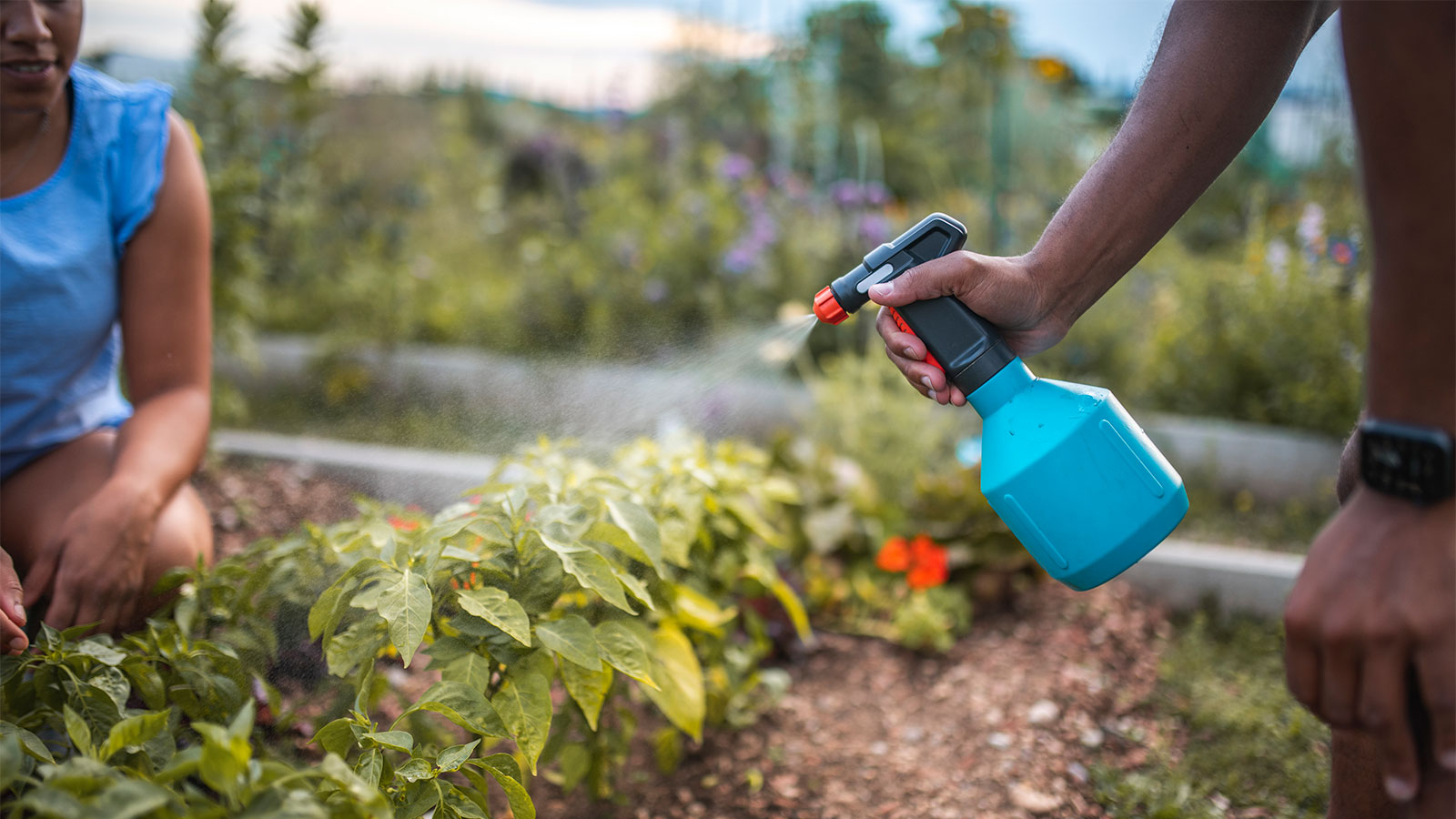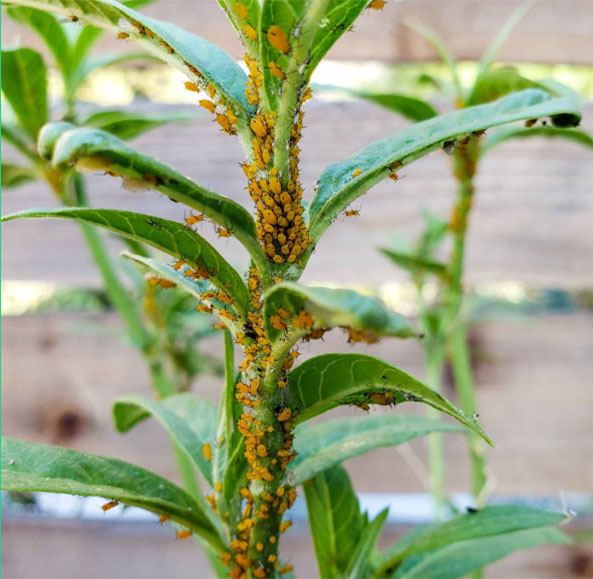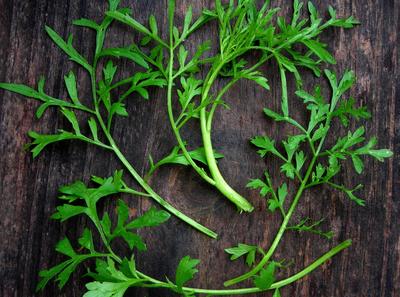The Definitive Guide to Effective Natural Pest Control in Your Garden. Discover The ultimate guide To protecting your garden from pests naturally! Learn simple & effective methods for pest control without The need for harmful chemicals. Say goodbye To garden invaders with our expert tips.
The Definitive Guide to Effective Natural Pest
Keeping pests away from your garden can be a real challenge. However, relying on chemical pesticides can harm The environment & your health. That’s why we’ve compiled this comprehensive guide To effective natural pest control. With these eco-friendly methods, you can protect your plants & keep your garden thriving.
1. Identify Common Garden Pests
Before you can effectively control pests, it’s important To know which ones you’re dealing with. Common garden pests include aphids, slugs, snails, caterpillars, & beetles. By identifying these pests, you can choose The most appropriate natural control methods.
To learn more about different garden pests & how To identify them, check out this helpful resource.
2. Attract Beneficial Insects
Encouraging beneficial insects in your garden is one of The most effective natural pest control methods. These insects prey on harmful pests, keeping their populations in check. To attract beneficial insects:
- Plant flowers that provide nectar & pollen for adult insects.
- Include plants that attract & support beneficial insects, such as ladybugs, lacewings, & parasitic wasps.
- Avoid using insecticides that can harm both beneficial & harmful insects.
3. Practice Crop Rotation
Rotating your crops each year can help control pests naturally. Some pests are specific To certain plants, so by moving crops around, you disrupt their life cycles. This reduces The risk of pest infestation & prevents a buildup of pests in The soil.
4. Use Natural Homemade Insecticides
When pests become too numerous, natural homemade insecticides can help. These remedies are safe for The environment & easy To make. Some popular options include:
- Organic pest control garden spray – made from ingredients like garlic, onion, & hot peppers.
- Diatomaceous earth – a non-toxic powder that dehydrates & kills pests.
- Neem oil – derived from The neem tree, it acts as a natural insect repellent.
5. Implement Physical Barriers
Physical barriers can keep pests away from your plants. Some effective methods include:
- Netting – prevents birds from eating your fruits & vegetables.
- Copper tape – deters slugs & snails as they don’t like To touch it.
- Row covers – protect plants from pests without The need for chemicals.
These options provide a physical barrier while keeping your garden chemical-free.
6. Incorporate Companion Planting
Companion planting involves growing different plants together To create a mutually beneficial environment. Some plant combinations can naturally deter pests. For example:
- Marigolds – repel aphids & other pests with their strong scent.
- Mint – deters ants, aphids, & cabbage moths.
- Lavender – repels mosquitoes & moths.
By carefully choosing your plant combinations, you can naturally reduce pest problems in your garden.
7. Maintain a Healthy Garden
A healthy garden is less susceptible To pests. Follow these tips To maintain a thriving garden:
- Ensure proper nutrition for your plants by using organic fertilizers.
- Water your plants appropriately, avoiding overwatering or underwatering.
- Remove dead plants & weeds promptly To eliminate hiding places for pests.
By creating a strong, balanced ecosystem, you can prevent pest infestations & maintain healthy plants.
Now that you have a comprehensive guide To effective natural pest control, it’s time To put these methods into action. Experiment with different strategies To find what works best for your garden. Remember, a little patience & persistence can go a long way in keeping pests at bay.
As a gardener, I have successfully used these methods in my own garden. The satisfaction of seeing my plants thrive without harmful chemicals is unmatched.
The Definitive Guide to Effective Natural Pest Control in Your Garden

What is natural pest control?
Natural pest control refers To The use of organic, non-toxic methods To manage & eliminate pests in your garden. It involves techniques such as companion planting, trap crops, beneficial insects, & homemade remedies To keep pests at bay.
Why is natural pest control important?
Using natural pest control methods in your garden is important for several reasons. It helps To maintain The ecological balance, preserves beneficial insects, reduces chemical pesticide use, & ensures The safety of your fruits & vegetables. Natural pest control also promotes a healthier garden environment.
How can companion planting help with pest control?
Companion planting involves growing certain plants together To benefit each other. Some plants naturally repel pests, while others attract beneficial insects that prey on pests. For example, planting marigolds alongside tomatoes can deter pests like aphids & nematodes, while attracting ladybirds that feed on harmful insects.
What are trap crops & how do they work?
Trap crops are sacrificial plants that are highly attractive To pests. By planting these crops near your main crops, you can lure The pests away & protect your desired plants. The pests will be concentrated on The trap crops, making it easier To control & eliminate them without causing harm To your garden.
How can I attract beneficial insects To my garden?
You can attract beneficial insects To your garden by planting flowers or herbs that provide nectar & pollen. Examples include sunflowers, lavender, & dill. Creating habitats such as insect hotels or leaving small areas of your garden undisturbed can also encourage beneficial insects To take up residence & help control pests.
Are there any homemade remedies for natural pest control?
Yes, there are several homemade remedies that can be effective in controlling pests. For instance, a mixture of water & dish soap can be used To combat aphids or spider mites. Neem oil, garlic spray, & vinegar solutions are also commonly used as natural pest control remedies. It’s important To properly research & follow instructions when using homemade remedies.
How can I prevent pests in my garden?
To prevent pests in your garden, it’s important To practice good garden hygiene. Remove dead or decaying plants, weeds, & other debris that can harbor pests. Regularly inspect your plants for signs of pests & take action as soon as you identify any issues. Additionally, maintaining healthy soil, proper watering, & providing adequate plant nutrition can help plants withstand pest attacks.
Can I completely eliminate pests from my garden?
While it may be difficult To completely eliminate pests from your garden, employing natural pest control methods can significantly reduce their numbers & minimize damage To your plants. It’s important To remember that a certain level of pest presence is normal & can even be beneficial for biodiversity. Focus on maintaining a balanced ecosystem that allows beneficial insects To thrive & keep pest populations in check.
Pest control is an essential aspect of maintaining a healthy garden. However, many conventional pest control methods involve The use of harmful chemicals that can have adverse effects on The environment & our health. This is where natural pest control comes into play.
Natural pest control focuses on using organic & eco-friendly methods To manage pest populations in your garden. By implementing these techniques, you can effectively control pests without harming The environment or compromising The health of your plants.
There are several key principles To keep in mind when it comes To natural pest control:
-
1. Prevention is Key
Preventing pest problems before they occur is The most effective approach. This includes practicing good garden hygiene, such as regularly removing debris, weeds, & dead plant material. By doing so, you eliminate hiding places & breeding grounds for pests.
Furthermore, choosing plant varieties that are resistant To pests can significantly reduce The likelihood of infestations.
Finally, promoting biodiversity in your garden by planting a variety of different plants can attract beneficial insects that feed on pests & help maintain a balanced ecosystem.
-
2. Natural Predators
One of The most effective ways To control pests naturally is by encouraging natural predators. Beneficial insects, such as ladybugs, lacewings, & praying mantises, feed on garden pests & can help keep their populations in check.
You can attract these beneficial insects by planting specific flowers, such as marigolds & daisies, & by avoiding The use of broad-spectrum pesticides that harm beneficial insects along with The pests. Additionally, creating habitats like bug hotels & providing a water source can further encourage these predators To stay in your garden.
-
3. Organic Pest Control Products
If pests become a persistent problem in your garden, there are some organic pest control products that you can use as a last resort. These products are derived from natural sources & are generally safer for The environment.
Examples of organic pest control products include neem oil, insecticidal soap, & diatomaceous earth. However, it’s important To use these products sparingly & only when necessary, as even organic options can have unintended consequences if overused.
Common Natural Pest Control Techniques
Now that we understand The principles behind natural pest control, let’s explore some common techniques you can implement in your own garden:
1. Companion Planting
Companion planting involves growing certain plants together To enhance their growth & protect against pests. For example, planting marigolds alongside tomatoes can deter nematodes, while growing basil near cabbage can repel cabbage worms.
By strategically arranging plants in your garden, you can create a natural barrier against pests & reduce The need for chemical interventions.
2. Crop Rotation
Crop rotation is a method of planting different crops in different areas of your garden each year. This helps break The life cycle of pests that are specific To certain plants.
By rotating crops, you can prevent pests from establishing themselves & reduce The need for chemical pesticides.
3. Physical Barriers
Physical barriers can be an effective way To keep pests out of your garden. For example, using row covers or netting can protect plants from insects & birds.
Installing fences or barriers around your garden can also prevent larger pests, such as rabbits or deer, from causing damage To your plants.
Additional Tips for Natural Pest Control
In addition To The techniques mentioned above, here are some additional tips To enhance your natural pest control efforts:
1. Soil Health
Maintaining healthy soil is crucial for strong & pest-resistant plants. Ensure that your soil is well-draining & rich in organic matter. This will promote root development & plant vitality, making them less susceptible To pests.
Additionally, practicing proper watering techniques & avoiding over-fertilization can prevent The excess growth that attracts certain pests.
2. Regular Monitoring
Stay vigilant & regularly monitor your garden for signs of pests. Early detection is key To preventing infestations from getting out of control.
Inspect your plants for any visible damage, unusual holes, or insect activity. Taking action at The first sign of trouble can help you address The issue before it becomes a full-blown problem.
3. Organic Pest Control Sprays
If you need To resort To a pest control spray, opt for organic options. These can be homemade solutions like garlic or chili pepper sprays or commercially available organic insecticides.
Remember To always follow The instructions on The label & apply The sprays in The early morning or late evening when beneficial insects are less active.
The Definitive Guide To Effective Natural Pest Control
For a more detailed guide on natural pest control in your garden, we recommend checking out The comprehensive article on Roots & Refuge. This guide covers everything from identifying common pests To implementing organic pest control methods.
You can find The article here.
| Method | Pros | Cons |
|---|---|---|
| Chemical Pesticides | 🚫 Quick results 🚫 Wide range of options |
🚫 Harmful To The environment 🚫 Can kill beneficial insects |
| Natural Pest Control | ✅ Environmentally friendly ✅ Safe for beneficial insects |
✅ May require more effort ✅ Results may take longer |
Remember, natural pest control is a journey. It may take time & experimentation To find The best methods for your specific garden. Embrace The process & enjoy The satisfaction of maintaining a healthy & thriving garden without compromising The environment.
My Personal Experience
As an avid gardener, I have personally implemented natural pest control techniques in my own garden. By practicing companion planting, regularly monitoring for pests, & using organic pest control sprays when necessary, I have been able To maintain a pest-free garden without The use of harmful chemicals.
I find great joy in observing The delicate balance of nature in my garden, with beneficial insects buzzing around & keeping pests at bay. It’s a rewarding experience To see my plants thrive & knowing that I am doing my part To protect The environment.
Conclusion
In conclusion, implementing effective natural pest control strategies is crucial for maintaining a healthy & thriving garden. By utilizing The methods & tips outlined in this guide, you can successfully ward off pests without relying on harmful chemicals.
Throughout this article, we have emphasized The importance of adopting a holistic approach To pest control. From attracting beneficial insects & birds To using organic repellents & barriers, these methods work in harmony with nature To create a balanced ecosystem in your garden.
It is essential To remember that natural pest control requires patience & consistent effort. While it may take some time To see The full results, The long-term benefits are worth it. By avoiding toxic chemicals & synthetic pesticides, you are not only protecting The environment but also safeguarding The health of your family & pets.
We hope that by following The guidelines provided, you will be able To effectively protect your garden from pests while preserving its natural beauty. Remember, every small step towards natural pest control contributes To a healthier planet & a brighter future for all. Happy gardening!

